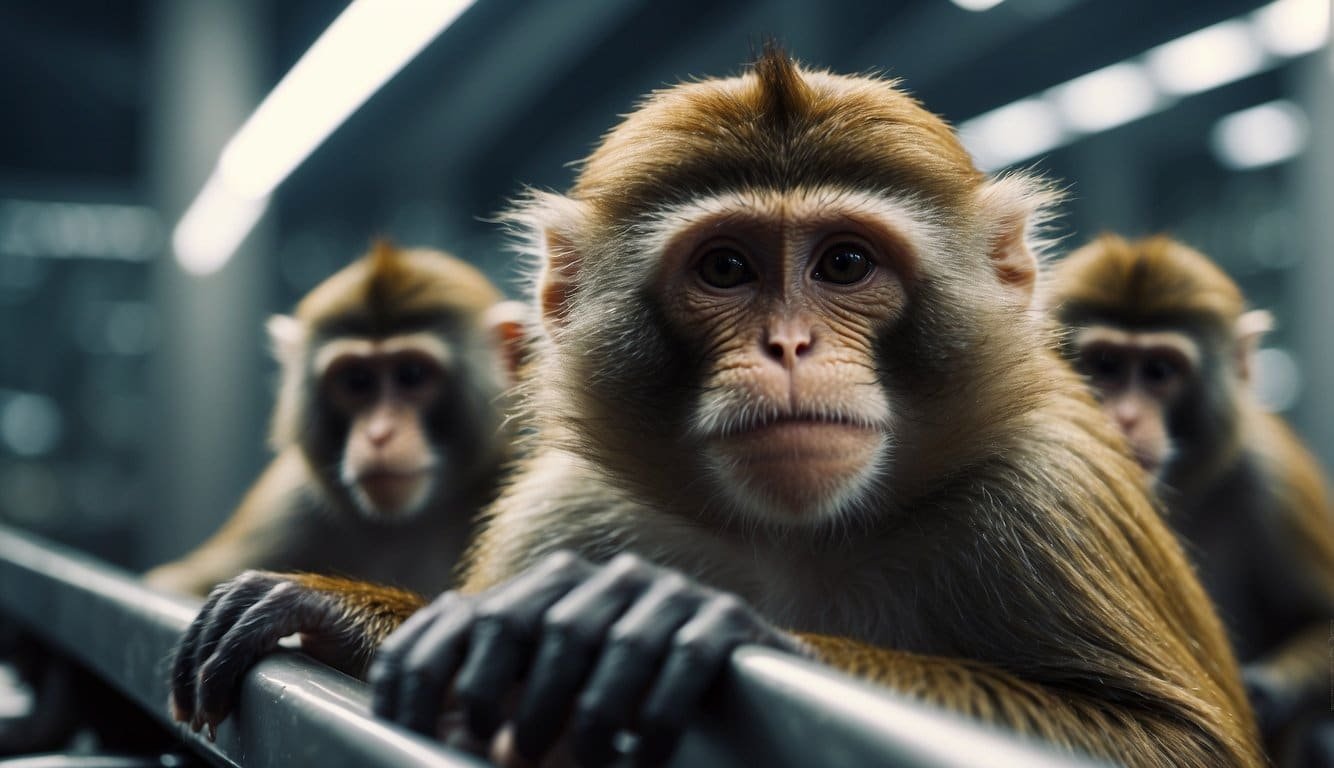Monkey Labor in the Coconut Industry
Utilizing monkeys for coconut harvesting has raised significant ethical questions while also impacting the economic landscape of this tropical agriculture sector.
Ethical Concerns and Animal Rights
The practice of using monkeys for coconut collection has attracted scrutiny from organizations such as PETA and the Wildlife Friends Foundation concerning animal welfare. They argue that monkey labor often involves cruel training methods and poor living conditions, highlighting instances where animals are chained and denied freedom for the sake of productivity. Efforts are being made to raise awareness about what some consider to be animal exploitation in the pursuit of profit.
Economic Impact and Industry Response
On the economic front, the use of monkeys can significantly lower the cost of harvesting coconuts, making it an appealing method for producers looking to maximize profits. However, consumer reactions to reports of animal abuse have led some in the industry to adapt and seek more ethical approaches. There is a growing number of coconut product certifications to assure consumers that no monkey labor was used, thus potentially impacting the marketability of coconut-related goods.
Global Response and Retailer Action

As the issue of monkey labor rises to global attention, major retailers and consumers are playing crucial roles in addressing animal welfare in supply chains. This section examines the significant steps by corporations and the actions taken by consumers to promote ethical practices.
Corporate Responsibility
Retailers such as Costco, Target, Walgreens, and Walmart have taken noticeable steps to ensure their supply chains are free from monkey labor, particularly concerning products like coconut milk which has been previously sourced from suppliers using pig-tailed macaques for harvesting. These companies have appointed Corporate Responsibility Officers who work diligently to audit and modify supply chains, reassuring that ethical standards are being met and preventing animal abuse. For example, Kroger has reassured customers that it does not stock products that utilize monkey labor and actively monitors its suppliers to maintain compliance.
Consumer Advocacy and Boycotts
Consumer awareness has sparked powerful boycott campaigns against brands failing to address the use of monkey labor. Organizations and individual advocates are leveraging media to inform the public and encourage boycotts as a direct method to impact retailers, such as Stop & Shop and HelloFresh, into revising their policies. Social media platforms buzz with discussions and advocacy, showing that informed consumers can exert substantial influence, pushing companies to overhaul practices in favor of ethical sourcing.
Legislation and Standards

When it comes to monkey labor, various international and domestic regulations, as well as ethical certifications play a critical role in shaping practices and standards in the industry.
International Laws and Audits
The issue of animal labor, particularly involving primates like macaques, has attracted the attention of several governmental and non-governmental organizations worldwide. In countries like Thailand and Indonesia, where pig-tailed macaques are often trained for activities such as climbing trees to harvest coconuts, regulations vary. On one hand, the Thai government has been scrutinized by animal rights groups for the alleged exploitation of these primates. Audits and checks by these groups aim to ensure the animals are not endangered and are treated humanely. Meanwhile, international pressure has led to the development of guidelines that encourage the humane treatment of these animals, often involving strict training protocols and working conditions.
Sustainability and Ethical Certifications
As the demand for ethically sourced products rises, sustainability and ethical certifications become increasingly relevant in the monkey labor debate. Suppliers and exporters in the industry, including those from the Philippines, India, and Indonesia, are now under more rigorous scrutiny from certifications bodies. These certifications help to reassure consumers and tech companies – which use products sourced from primate labor – that the farms and suppliers they are purchasing from adhere to certain ethical standards. In the USA, media outlets like USA Today have shed light on this matter, influencing public opinion and industry practices. These articles often highlight the need for sanctuaries and better living conditions for employed macaques, and how industry players are responding to such concerns.

